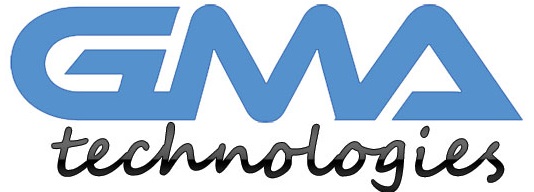Everyone wants to make it to the top of Google’s search engine rankings, but how do you get there? In this article, we look at the secrets to boosting your domain authority and reaching page one of Google. Discover the strategies and tactics you can use to make sure your content stands out from the competition and moves up the ranks with ease.
What is Domain Authority?
Domain authority (DA) is a metric used to determine how well a website will rank on search engines. It is determined by a number of factors, including age, popularity, and size. The higher the DA, the more likely it is that a website will appear on the first page of search results.
There are a number of ways to improve DA, including:
- Creating high-quality content that is relevant to your target audience.
-
Promoting your website through social media and other online channels.
-
Building backlinks from high-quality websites.
-
Ensuring that your website is mobile-friendly and loads quickly.
-
Using relevant keywords throughout your website and in your titles and descriptions.
-
Optimizing images and other media for search engines.
-
Registering your website with search engines.
Factors That Affect Domain Authority
Domain Authority (DA) is a metric used to gauge the strength of a website in the eyes of search engines. It’s one of many factors that can affect your site’s ranking on SERPs, and it’s important to understand how it works if you want to improve your chances of ranking high in search results.
There are a number of factors that can influence your Domain Authority score. Here are some of the most important ones:
- The Age of Your Domain: Older domains tend to have more authority than newer ones. This is because they’ve had more time to build up link equity and trust with search engines. If you’re just starting out, don’t worry – there are things you can do to offset the age factor (more on that below).
-
The Size of Your Site: Larger sites tend to have more authority than smaller ones. This is because they usually have more content, more pages, and more links pointing to them. In general, it’s easier for larger sites to rank well than smaller sites.
-
The Quality of Your Content: Quality content is key for any website. Search engines prefer to rank sites that have well-written, informative, and relevant content. If your content isn’t up to par, it can hurt your domain authority score.
-
The Number of Links Pointing to Your Site: The more links you have pointing back to your site from other websites (known as backlinks), the better. These links show search engines that your site is trusted by other sites, which gives it a boost in rankings.
-
Your Domain Authority Score: Of course, your domain authority score itself can influence how well your site ranks in search results. If you have a higher DA score, chances are you’ll rank higher than sites with lower scores.
By understanding these factors and how they affect your Domain Authority score, you can start taking steps to improve the ranking of your website in SERPs.
Tips for Improving Domain Authority
There are a number of things you can do to improve your domain authority and help your website rank higher in search engine results pages (SERPs). Here are some tips to get you started:
- Improve your website’s content. Make sure that your site’s content is high-quality, keyword-rich, and informative. This will not only help improve your domain authority, but also keep visitors engaged with your site, which can lead to more conversions.
-
Increase your website’s link popularity. One way to do this is by guest blogging on high-authority websites and including links back to your own site in your blog posts. You can also submit articles to directories and include links in social media posts.
-
Optimize your website for search engines. Make sure that your website is properly optimized for SEO so that it can rank higher in SERPs. This includes optimizing title tags, meta descriptions, and header tags, as well as increasing the keyword density of your site’s content.
-
Increase your social media activity. Social signals are increasingly important for ranking higher in SERPs.Make sure that you’re active on social networks such as Twitter and Facebook, and that you’re sharing high-quality content on a regular basis.
-
Monitor your progress regularly. Use analytical tools such as Google Analytics to track how well your site is performing in terms of traffic and conversions. This will help you identify areas that need improvement so that you can adjust your strategy accordingly.
Strategies for Reaching Page One of Google
As the world’s largest search engine, Google receives over 3.5 billion searches per day. That’s a lot of traffic! So, how do you make sure your website is one of the first results that appears when someone types in a relevant keyword?
Here are some strategies for reaching page one of Google:
- Optimize your website for SEO. This means using the right keywords and phrases in your titles and throughout your content. It also means making sure your website is easy to navigate and mobile-friendly.
-
Build links to your website from other high-quality websites. This will help Google see your website as an authority on the topic.
-
Promote your website through social media and other online channels. This will help generate more traffic to your site, which can also help with SEO.
-
Make sure your website’s content is fresh and up-to-date. Google favors websites that are constantly adding new, relevant content.
-
Keep an eye on your competition. See what they’re doing to reach page one of Google and try to emulate their success.
Tracking Your Progress and Results
There are a few key things you should track when trying to boost your Domain Authority and reach Page One of Google. These include:
- The number of inbound links pointing to your website. This can be done using a tool like Moz’s Open Site Explorer.
-
Your website’s Alexa Rank. This is a measure of how popular your site is relative to other sites on the web.
-
The number of social signals pointing to your website. This includes things like Facebook likes, Twitter mentions, and Pinterest pins.
-
Your website’s pageviews and unique visitors per month. This data can be found in Google Analytics.
-
The keywords you’re ranking for in Google. You can use a tool like SEMrush to track this information.
By tracking these five metrics, you’ll be able to see which efforts are paying off and which ones aren’t helping as much as you’d hoped. This will allow you to adjust your strategy accordingly and continue working towards boosting your Domain Authority and reaching Page One of Google!
How to Boost Domain Authority with Offsite SEO Techniques
Offsite SEO techniques are key to boosting domain authority and reaching page one of Google. Here are four tips to get started:
- Publish high-quality content on your website. This will help attract inbound links from other websites, which is a major factor in domain authority.
-
Make sure your website is well-linked internally. This means using keyword-rich anchor text to link between pages on your own site.
-
Promote your content through social media and other channels. This will help build buzz and get more people talking about your site, which can also lead to more links.
-
Keep an eye on your competition. See what they’re doing right and try to emulate their success.
How to Boost Domain Authority with Onsite SEO Techniques
Domain authority is a search engine ranking score developed by Moz that predicts how well a website will rank on search engine result pages (SERPs). A domain with a higher DA score will rank higher on SERPs than a domain with a lower DA score.
There are a number of onsite SEO techniques you can use to boost your domain authority, including:
- Optimize your title tags.
- Use keyword-rich descriptions.
- Increase your social shares.
- Optimize your images.
- Publish fresh content regularly.
- Interlink your pages and posts.
Conclusion
In this article, we’ve explored the core concepts behind domain authority and how it ties to SEO success. We discussed some of the key components that can help increase your site’s domain authority, including content quality, backlinks, social signals and more. With these strategies in hand, you should now be able to build a successful SEO plan and reach page one on Google. Just remember that SEO is an ongoing process and you’ll need to consistently work at improving your domain authority if you want to stay ahead of the pack!

